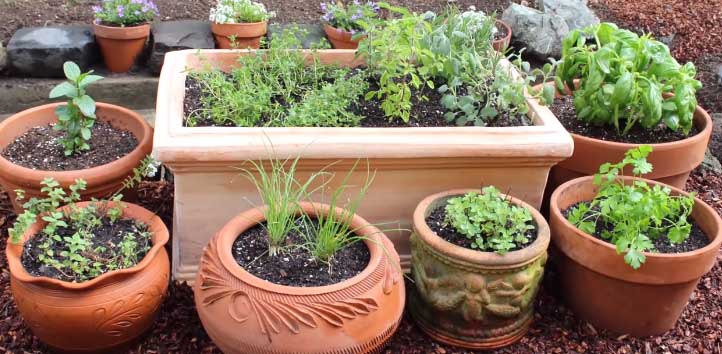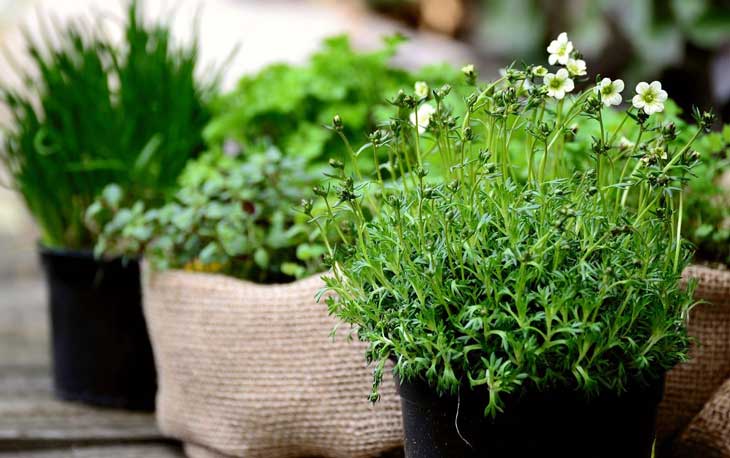Herbs are probably the easiest kind of plant to grow in a garden. Some people grow herbs in their yard, and some people grow them in small pots which rest by the window. Now another way to grow herbs is in an organic garden.
An organic garden has no use of various tools used for plowing or sowing.
This stuff is harmful to the environment. Instead, the gardeners or farmers use small hand tools and their manual labor to prepare the soil.
But how to fertilize herbs in the organic garden? We will talk about this shortly to give you a clear understanding of what you should be doing.
Steps to Fertilize Herbs in the Organic Garden

Fertilizing herbs in an organic garden involves knowing the best fertilizers for herbs and the best techniques to use when fertilizing the plants in your organic garden.
We have given some detailed steps below to show how fertilizing herbs in organic gardens are correctly done. The steps are as follows:
Step 1: Understanding the Types of Fertilizer
Fertilizer is food for plants. Your herbs will need plant food of the highest quality.
There are various types of fertilizer coming from many different companies. You need to be wise here and carefully select the high-quality fertilizer suitable for your herbs and soil type.
There are many ways to categorize fertilizers. There is both organic and inorganic fertilizer, or there is liquid or granule fertilizer. There may be other forms of fertilizer, but these are the main ones used for herbs in organic farming.
Step 2: How to Use Granule Fertilizer
It is just fertilizer found in the form of solids, but the solids are sand-like or granule-like. All you need to do with this sort of fertilizer is sprinkle it all over the earth you have plants or herbs.
You then need to pour water in herbs every single day to help with the process. Eventually, the granules will slowly break down and join with the soil, where the nourishment inside the granules will spread out into the earth.
Step 3: How to Use Liquid Fertilizer
When you hear about liquid fertilizer, you immediately assume you will find it in liquid form. But actually, it is found in both granule or liquid concentrate form.
The liquid from one is just sprayed directly on the plants. The granule form needs to be mixed with water and diluted before spraying onto the plants.
The advantage of liquid fertilizer is that it gets absorbed much quicker, so the results also come faster. Other than spraying, you can also pour the solution into the soil if you want.
Step 4: How to Use Organic or Inorganic Fertilizer
The organic type of fertilizer contains either plant-based or animal-based nutrients meant for plants. In comparison, the inorganic type of fertilizer has various kinds of minerals and chemicals. Both organic and inorganic fertilizer can be found in liquid or granule form.
Inorganic chemical-based fertilizer can either be in a liquid spray form that you spray on the plants or in a sand form you sprinkle on the soil.
And organic fertilizer could either be of natural plant compost tea that you pour onto the soil or be found as an animal bone meal that is granular and needs to be buried into the soil below the roots of the plants.

Step 5: Knowing the Amount of Fertilizer Needed
You can determine the fertilizer quantity depending on the size of the pots of herbs or the kind of soil. If your soil is super fertile, then you might not even need fertilizer.
But in general, for herbs, fertilizer is barely needed. Herbs are capable of growing with the smallest amount of fertilizer in their soil.
So now you just need to understand the species of the herbs to know if extra fertilizer is required. Then you will know how much fertilizer is required and how many times a month the fertilizer is needed for the herbs when gardening.
Step 6: Choosing from High-Quality Brands of Fertilizer
The fertilizer for herb garden would be the organic herb plant food by Jobe’s Organics.
This is known as the fastest-acting fertilizer that very quickly mixes up in the soil right after it has been applied to the soil or plants. It is a premium grade, so it increases the productivity of plants.
The kind of formula this fertilizer has is a composition of manure, phosphorus, potassium, nitrogen, and biozome.
Biozome is a material with many microbes in it that is meant to improve the quality of the soil.
Since this fertilizer is not organic, there will be no chemicals in the fertilizer. Chemicals may work well on your plants, but using them frequently can damage your plants and the soil.
Final Verdict
Knowing how to fertilize herbs in the organic garden is a big part of gardening or farming.
Just planting the seeds or seedlings, watering every day, and letting the plants get sun will not be enough for the herbs in your organic garden to grow as quickly as you consume them.
Fertilizer is needed, but you also need to know which kind of fertilizer would be best for your garden herbs.
After you pick out fertilizer or two, you can learn how to use these fertilizers on your plants and soil.